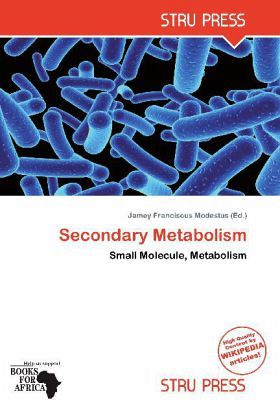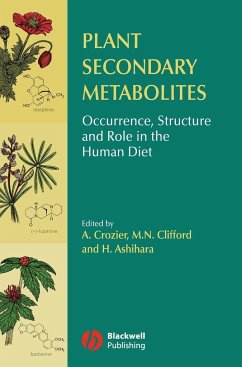
Secondary Metabolism
Small Molecule, Metabolism
Herausgegeben: Modestus, Jamey Franciscus
Versandkostenfrei!
Versandfertig in 6-10 Tagen
22,99 €
inkl. MwSt.

PAYBACK Punkte
11 °P sammeln!
Secondary metabolism (also called special metabolism) is a term for pathways and small molecule products of metabolism that are not absolutely required for the survival of the organism. Examples of the products include antibiotics and pigments. To distinguish non-secondary ("ordinary") metabolism, the term basic metabolism is sometimes used. Secondary metabolites are produced by microbes, plants, fungi and animals, but not by all of them.












